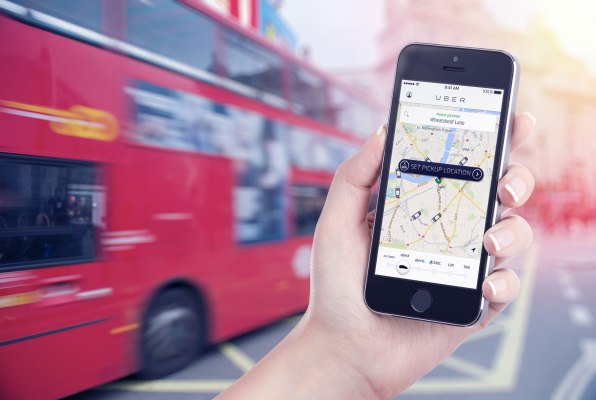Uber is taking legal action to try to block forthcoming regulatory changes in London that could impact its ability to recruit drivers onto its platform — including a new requirement for drivers to have passed a written English language test in order to operate a private hire vehicle.
In January the regulatory body Transport for London confirmed there would be a formal English language requirement for drivers, as part of a modernization of the rules governing operators.
This followed a TfL consultation last fall on a raft of possible changes to the rules that would have placed even more stringent limitations on on-demand taxi app operators — such as imposing a five-minute wait time prior to pick-ups and outlawing the displaying of real-time vehicle locations within an app.
Uber kicked up a stink about the proposals, looping its users in as lobbyists by messaging them to sign a petition against changes it claimed would destroy the Uber “you know and love”. After which TfL published a much watered down list of requirements to be taken forward.
However, earlier this summer, the regulator further tweaked the incoming rules — including specifying that the formal English requirement be a written English language test.
The requirement states that from October 1 new applicants and licensees renewing their licence who are not from a majority English-speaking country must present a valid English language certificate with a B1 level of English on the Common European Framework as part of their new or renewal licence application.
“Anyone who does not have the appropriate level of English will not be granted a licence,” TfL adds.
TfL says the written English language requirement is necessary not only to ensure good communication with passengers but for drivers to be able to brief them on public safety issues and to read and understand safety and travel information sent to them by the regulatory.
It notes the proposal for a formal English language requirement was supported by 80 per cent of the 20,000 respondents in its consultation.
Uber clearly disagrees, arguing the written test goes far beyond what is needed to operate a private hire vehicle, and claiming it even exceeds the standard required to achieve British citizenship.
The company is also unhappy about several additional requirements TfL has added to the updated rules. Specifically it is challenging a stipulation that taxi companies must operate a London-based call centre for passengers to call if they need more information, and a requirement that drivers have commercial insurance through the year, even for any months they are not driving.
A fourth sticking point for Uber is a TfL requirement the company inform it of forthcoming changes to its app, which it argues will slow down the rollout of new features.
Uber has now submitted an application for a judicial review of TfL’s rules in the high court in England.
“This legal action is very much a last resort. We’re particularly disappointed that, after a lengthy consultation process with Transport for London, the goalposts have moved at the last minute and new rules are now being introduced that will be bad for both drivers and tech companies like Uber,” said Tom Elvidge, Uber London’s general manager, in a statement.
Uber has once again sought to recruit its users to apply pressure to regulators on its behalf, sending an email to London users earlier this month urging them to email the city’s mayor with their objections to what it dubbed the “bureaucratic new rules”.
“Fewer drivers will mean longer waiting times or no cars when you need them most,” Uber’s email warns London users, while arguing the changes also “threaten the livelihood of thousands of drivers”.
Responding to Uber’s legal challenge in its own statement, a TfL spokesman said: “We responded to Uber’s letter and will be robustly defending the legal proceedings brought by them in relation to the changes to private hire regulations. These have been introduced to enhance public safety when using private hire services and we are determined to create a vibrant taxi and private hire market with space for all providers to flourish.”
